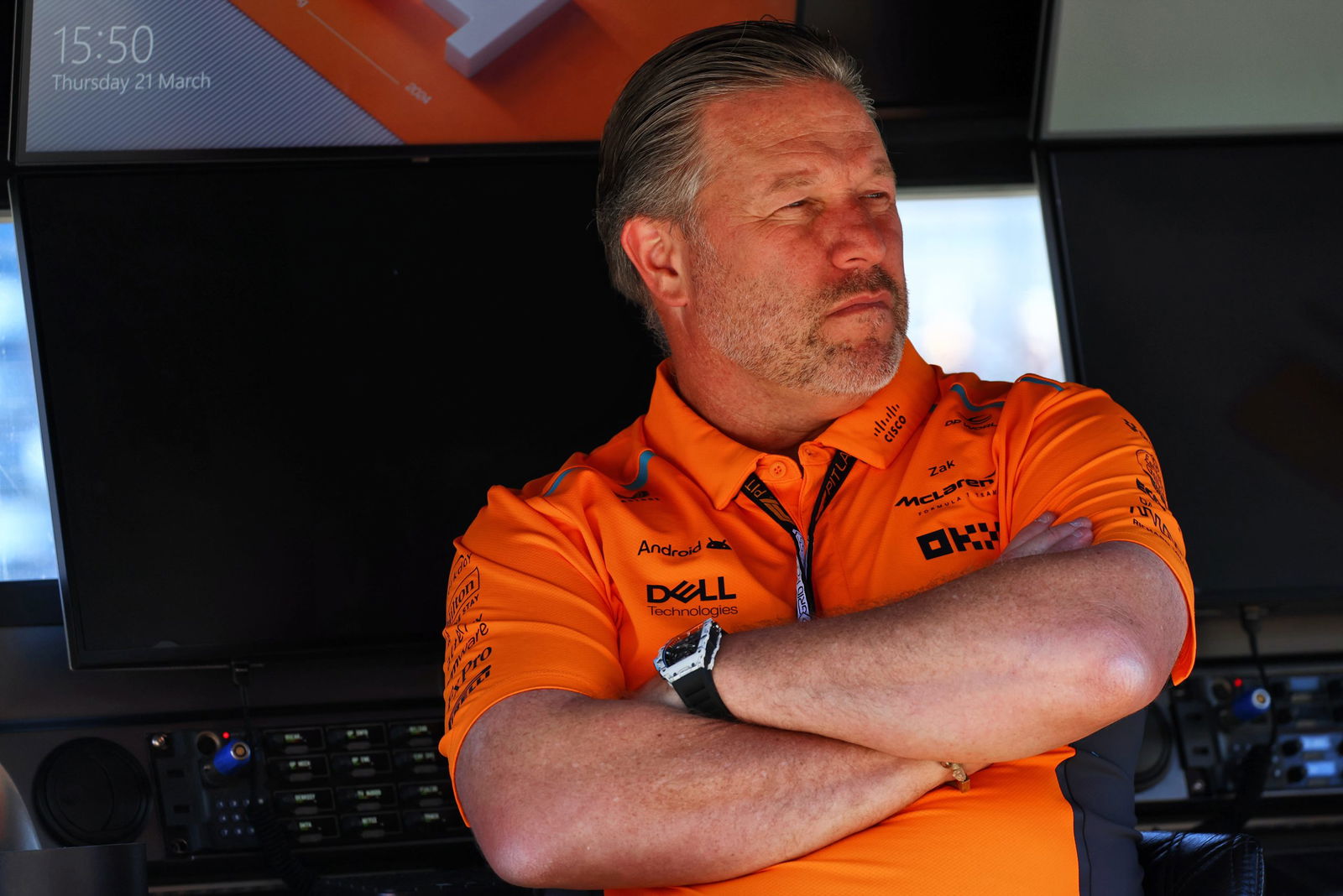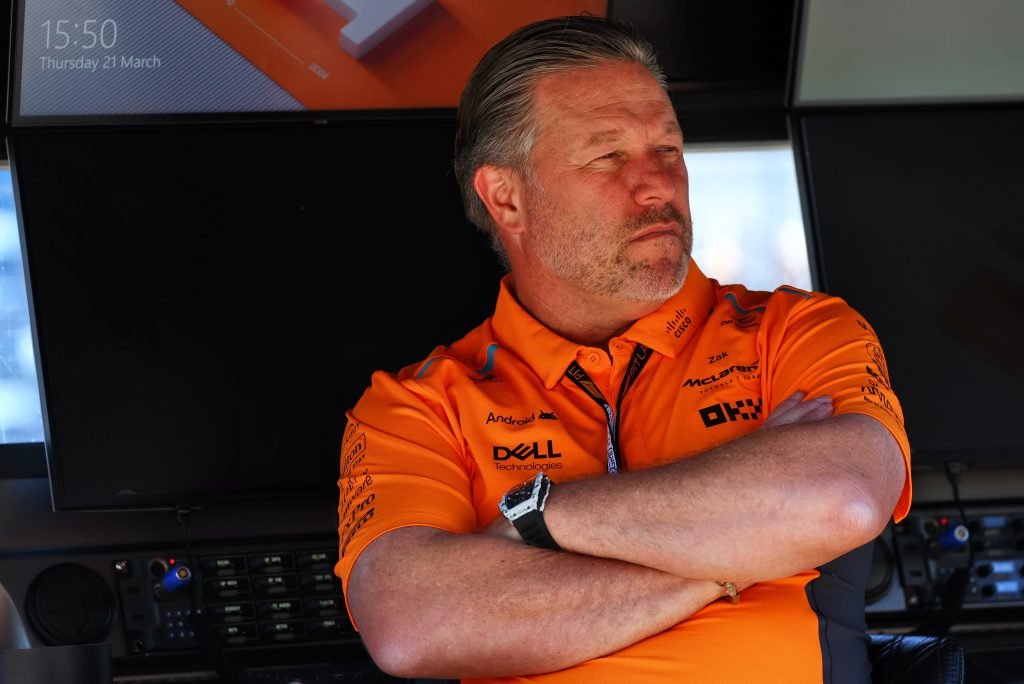

Both Josef Newgarden and Scott McLaughlin were disqualified from Race 1 of the 2024 IndyCar Series after they illegally used push-to-pass on restart laps.
The stated explanation for the breach is that it originated from a change to a line of code in the central logger unit (CLU) in order to undertake hybrid testing in August last year.
That code, so Team Penske President Tim Cindric says, was mistakenly copied through to set-ups used for the opening events of this year’s IndyCar season.
Newgarden, who deployed push-to-pass on three occasions across two of the three restarts, claimed in a lengthy press conference at this weekend’s Alabama Grand Prix that he mistakenly thought IndyCar’s rules had changed, noting that push-to-pass was allowed on restarts for the exhibition race at The Thermal Club.
McLaughlin, who claimed his single restart application was out of “habit,” said he knew there to not have been a change to the rulebook when queried on that explanation, while Will Power’s midweek statement quite explicitly stated “I followed the rules.”
Brown, whose own Pato O’Ward inherited the official St Petersburg victory, backed how IndyCar dealt with the matter, despite Roger Penske owning both the series and the race team.
However, he was left “disappointed” with how the latter tried to explain its actions.
“I’m comfortable with that but ended up disappointed in the various excuses or explanations that the team and drivers have made because they don’t make a lot of sense,” he said from this weekend’s Monaco Formula E event.
“I think champion drivers know exactly what the rules are, they know exactly what they have in the car.
“A team of that calibre to have an oversight of that magnitude doesn’t seem right. The team and the drivers are too good to say we didn’t know the rules, we didn’t know it was there, it was an oversight…
“None of that, I think, stacks up and when something like that happens, I think you just need to own it.”
While Penske’s common ownership of the series and one of its leading teams creates an obvious potential for conflict of interest, Brown was happy with IndyCar’s response in terms of the penalties.
He did, however, stress that steps need to be taken to ensure a repeat cannot occur.
“I think the series demonstrated it had the integrity,” he added.
“They found out there was an issue and dealt with it swiftly.
“I would like to understand and make sure if in the future how we all kind of missed push-to-pass being deployed when it shouldn’t, like on the spot. So what technology, or data, or stewards and teams do we need to have?
“If the DRS opened up [in F1], that’s more visible you’d have everyone going ‘what’s going on?’ So, I would like to understand how it was missed at the time and make sure that in the future there’s the right information being looked at.
“I think on a restart is a little bit trickier because so many things are happening to see what car has got more speed, but they’ve all got onboard cameras, you can see the button getting pushed. So that’s one thing from a series standpoint.
“I think they showed their integrity because they penalised the guy who owns the series.”
IndyCar President Jay Frye stated on Friday that CLUs will be locked going forward, and further firewalls implemented in race control, but did not go into specifics.
Penske Entertainment Corporation President Mark Miles furthermore advised that checks of 2023 data, with particular attention on the races after the hybrid testing which Cindric cited, did not uncover any possible breaches.
Meanwhile, Roger Penske met with fellow team owners in his motorhome office at Barber in the half-hour leading up to Qualifying, although they were tight-lipped when queried by media afterwards.
Chip Ganassi, for example, smiled, “What meeting? I don’t know what you are talking about.
“C’mon, you know I can’t say anything.”
McLaughlin went on to qualify on pole position with Power, who was penalised only 10 points from St Petersburg given he did not deploy push-to-pass at an illegal time, to join him on an all-Penske front row.





















Discussion about this post